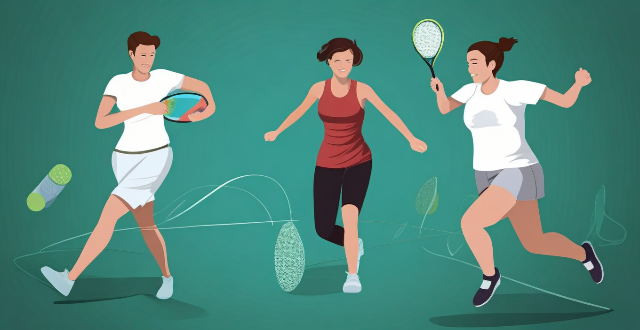Integrating sports programs with core educational values involves aligning athletic goals with academic objectives, promoting inclusivity and respect, fostering lifelong health and wellness, developing personal qualities and leadership skills, ensuring collaboration between educators and coaches, and continuously assessing progress for improvement.

Strategies for Integrating Sports Programs with Core Educational Values
Integrating sports programs with core educational values is a multifaceted approach that requires strategic planning and execution. Successful integration strategies often involve aligning the goals of physical education and athletics with broader educational objectives, fostering a culture of inclusivity, and promoting lifelong learning and personal development. Here are some strategies that have proven successful:
1. Aligning Athletic Goals with Academic Objectives
- Holistic Education Philosophy: Schools should adopt a philosophy where academics and athletics are seen as complementary parts of a well-rounded education. This means that the skills developed in sports, such as teamwork, discipline, and perseverance, are recognized as equally important as traditional academic subjects.
- Curriculum Integration: Integrate sports-related topics into the curriculum to show the relevance of physical education to other subjects. For example, biology classes could cover the physiology of exercise, while math classes might explore statistics related to sports performance.
2. Cultivating a Culture of Inclusivity and Respect
- Equal Opportunities: Ensure that all students, regardless of their skill level, have access to participate in sports programs. This can be achieved by offering a variety of sports and levels of competition.
- Positive Coaching: Coaches should be trained to promote positive behaviors both on and off the field. They should emphasize sportsmanship, respect for opponents, and the importance of hard work and dedication.
3. Promoting Lifelong Health and Wellness
- Physical Education for All: Make physical education a mandatory part of the curriculum at all grade levels to encourage lifelong fitness habits.
- Health Education: Teach students about the importance of nutrition, sleep, and stress management in maintaining overall health and athletic performance.
4. Personal Development and Leadership
- Character Development Programs: Implement programs that focus on developing character traits such as integrity, responsibility, and empathy among student athletes.
- Leadership Opportunities: Create leadership roles within sports teams, such as team captains or peer mentors, to allow students to practice and develop leadership skills.
5. Collaboration Between Educators and Coaches
- Regular Communication: Foster open communication channels between teachers and coaches to ensure that both parties are working towards the same educational goals for each student.
- Shared Responsibility: Teachers and coaches should share responsibility for the academic and athletic progress of students, providing mutual support and encouragement.
6. Assessment and Continuous Improvement
- Monitoring Progress: Regularly assess how sports programs are contributing to the core educational values and make adjustments as needed.
- Feedback Loops: Establish feedback mechanisms where students, parents, coaches, and educators can provide input on the effectiveness of the integration efforts.
By implementing these strategies, schools can successfully integrate sports programs with core educational values, creating an environment where students not only excel in their athletic pursuits but also develop into well-rounded individuals ready to face the challenges of the future.